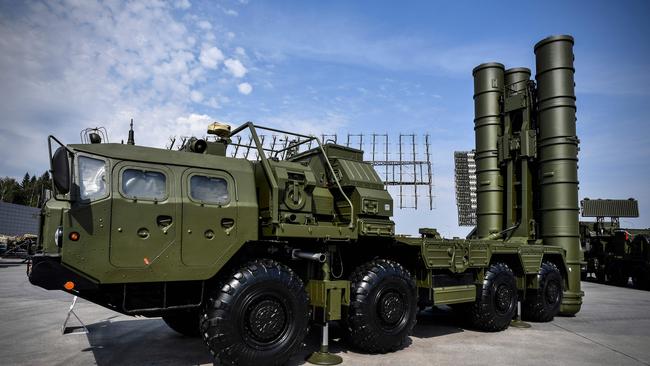Israel’s strikes on Iran also deliver blow to Moscow arms industry
Israel’s airstrikes on Saturday didn’t just destroy critical Iranian military infrastructure, they also damaged the reputation of Russian military equipment, already suffering for its poor performance during the invasion of Ukraine.

Israel’s airstrikes early Saturday didn’t just destroy critical Iranian military infrastructure. They also battered the reputation of Russian military equipment, which has already been pummelled by poor performance during Moscow’s invasion of Ukraine.
Iran’s Russian-made air defence equipment stopped few if any of the missiles Israel launched from 100 jet fighters, according to US and Israeli officials. Among Iran’s losses in the strikes were its three Russian S-300 air defence systems. Israel earlier this year hit Iran’s only other S-300.
The destruction comes atop similar strikes on S-300s by Ukrainian forces fighting Russia, plus even more embarrassing losses for Moscow. Kyiv has hit more advanced S-400 systems, including strikes in May and August that destroyed components or entire air interceptor complexes.
The S-400, first deployed in 2007, is Russia’s most sophisticated air defence equipment, its answer to the US Patriot system. Western security analysts have been concerned for years that it significantly weakens the long-held air superiority of NATO countries and their allies. The S-300 has been repeatedly updated since its introduction in the late 1970s.
Both Russian systems are used by some of Moscow’s closest allies, including China and Belarus, and its biggest arms customers, including India, Vietnam and Algeria.
These countries don’t necessarily face potential foes whose offensive capabilities are equivalent to Israel’s. The precision of Israel’s weekend attacks against the S-300 systems and critical parts of Tehran’s missile production facilities once again demonstrated Israel’s deep intelligence penetration of Iran, which was also highlighted by the assassination of Hamas’s political chief in Tehran in August and previous hits on its nuclear program.
No missile shield is impervious. Russia has hit at least one Patriot system in Ukraine. Israel has the world’s most advanced missile defence system, yet Iran and its allies managed to penetrate it during strikes with missiles and drones this year.
Russian systems’ performance is also unlikely to have an immediate impact on Moscow’s military exports because it is using every piece of weaponry it can produce, leading to frustration among some customers. Russian arms exports have plunged since its large-scale invasion of Ukraine in 2022, according to the Stockholm International Peace Research Institute.
Moscow’s foreign weapons sales fell 52 per cent last year from 2022, according to SIPRI, based on its own calculations of export values. A low volume of outstanding orders “suggests Russian arms exports are likely to remain well below the level reached in 2014-18, for at least the short term”, said a SIPRI report.
“Russia’s invasion of Ukraine has been a public relations disaster for its defence industry,” said Ian Storey, a senior fellow at the ISEAS-Yusof Ishak Institute, a think tank in Singapore. “Russia’s traditional customers have lost faith in the country’s defence industry and are looking for new suppliers.”
Russia’s biggest customers have few near-term alternatives, so are likely pressing Moscow for details on recent events, analysts said.
“You’re going to be asking questions of your supplier” about levels of performance and measures to improve it, said Douglas Barrie, a senior fellow for military aerospace at the International Institute of Security Studies, a London think tank.
The Wall Street Journal



To join the conversation, please log in. Don't have an account? Register
Join the conversation, you are commenting as Logout